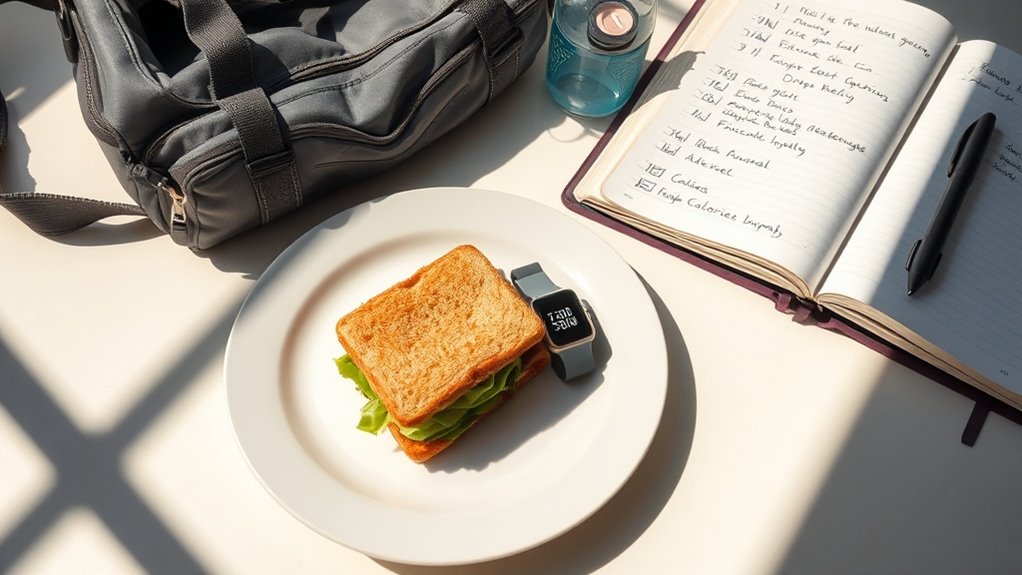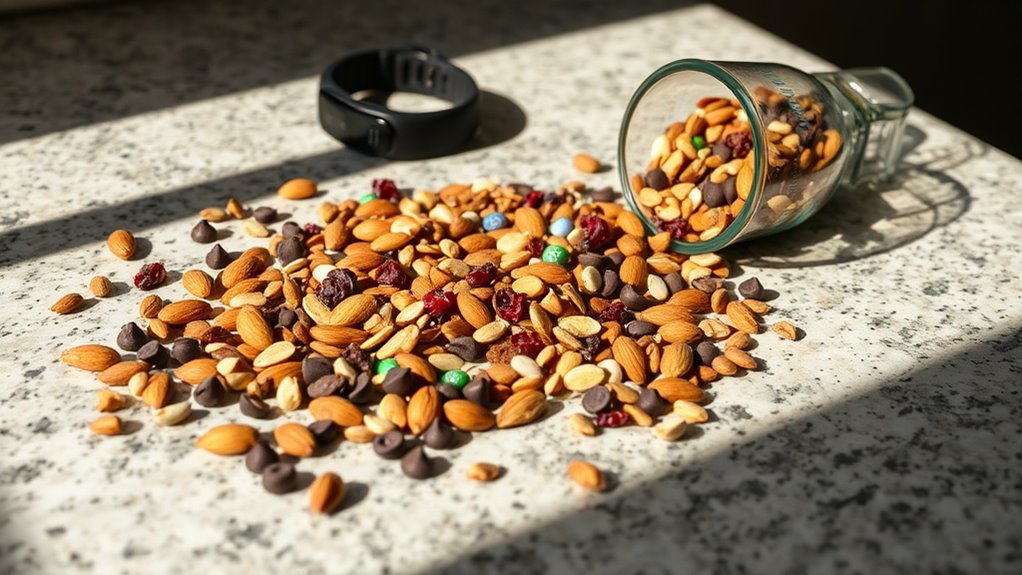The One Mistake That’s Keeping You Fat (And How to Fix It!)
The one mistake that’s keeping you fat is lack of quality sleep. When you’re sleep-deprived, it messes with your metabolism and increases cravings due to hormonal imbalances. You might find yourself reaching for high-calorie snacks and skimping on exercise motivation. Plus, poor sleep affects your willpower, making it harder to resist tempting foods. Fix this by prioritizing consistent sleep and creating a restful environment. Discover more strategies to enhance your sleep and boost your weight loss journey.
The Science of Sleep Deprivation and Weight Gain
When you skimp on sleep, you’re not just feeling groggy; you’re also setting the stage for weight gain.
Sleep deprivation disrupts your body’s metabolism, making it harder to burn calories efficiently. It can lead to increased insulin resistance, meaning your body struggles to manage sugar levels, ultimately storing more fat.
With less sleep, your energy wanes, reducing your motivation to exercise and prompting unhealthy food choices. Your body craves quick energy sources, often pushing you toward high-calorie snacks.
Furthermore, chronic lack of sleep can alter your circadian rhythms, making it difficult to maintain a healthy routine.
Prioritizing quality sleep isn’t just about feeling rested; it’s a crucial step in mastering your weight management efforts.
How Sleep Affects Hunger Hormones
Sleep plays a crucial role in regulating hunger hormones, so when you’re not getting enough rest, your appetite can spiral out of control.
Lack of sleep disrupts the balance of ghrelin and leptin—hormones that signal hunger and satiety. When you’re tired, ghrelin levels rise, making you crave more food, while leptin levels drop, reducing your sense of fullness. This imbalance can lead to overeating and weight gain.
To master your hunger hormones, consider these strategies:
- Prioritize consistent sleep schedules.
- Create a calming bedtime routine.
- Limit screen time before bed.
- Manage stress through mindfulness practices.
The Impact of Sleep on Metabolism
Lack of sleep doesn’t just mess with your hunger hormones; it can also wreak havoc on your metabolism. When you’re sleep-deprived, your body struggles to efficiently process glucose, leading to insulin resistance. This means your body can’t utilize energy properly, causing fat storage instead of fat burning.
Additionally, inadequate sleep lowers the production of growth hormone, which is vital for muscle repair and metabolism regulation. Without sufficient muscle mass, your resting metabolic rate declines, making it harder to maintain or lose weight.
To optimize your metabolism, prioritize quality sleep. Aim for 7-9 hours each night, establish a consistent sleep schedule, and create a restful environment. Mastering your sleep habits can be the key to unlocking a more efficient metabolism.
Willpower and Sleep: A Connection You Didn’t Know About
Although you mightn’t realize it, your willpower can be significantly affected by the quality of your sleep. When you skimp on sleep, your brain’s decision-making abilities weaken, making it harder to resist unhealthy cravings. This connection can sabotage your weight loss efforts.
Consider how sleep impacts your willpower:
-
Hormonal balance: Sleep regulates hormones like ghrelin and leptin, which influence hunger.
-
Cognitive function: A well-rested mind makes better food choices and resists temptations.
-
Emotional regulation: Sleep deprivation heightens stress and emotional eating.
-
Physical energy: Lack of sleep reduces motivation for exercise, crucial for weight management.
Prioritize sleep to strengthen your willpower and enhance your weight loss journey. Master your rest, and you’ll master your cravings.
Tips for Improving Sleep Quality for Weight Management
Quality rest plays a vital role in your weight management efforts. To enhance your sleep quality, establish a consistent sleep schedule. Go to bed and wake up at the same time every day, even on weekends.
Create a restful environment by keeping your bedroom dark, cool, and quiet. Limit exposure to screens an hour before sleep; the blue light disrupts melatonin production. Incorporate relaxation techniques like deep breathing or meditation to calm your mind before bed.
Avoid heavy meals, caffeine, and alcohol close to bedtime, as they can negatively impact your sleep. Lastly, consider incorporating regular physical activity into your routine, but avoid vigorous exercise right before bedtime.
Prioritize these strategies to optimize your sleep and, ultimately, your weight management goals.
Frequently Asked Questions
Can Lack of Sleep Cause Emotional Eating?
Yes, lack of sleep can definitely lead to emotional eating. When you’re tired, your body craves quick energy, often in the form of unhealthy snacks. Prioritizing rest helps you make better food choices and reduces cravings.
What Role Does Stress Play in Sleep and Weight?
Stress disrupts your sleep patterns, leading to fatigue and increased cravings. When you’re tired, your body’s appetite hormones go haywire, making it harder to resist unhealthy foods and manage your weight effectively.
How Does Caffeine Affect Sleep Quality?
Caffeine disrupts your sleep quality by blocking adenosine, a neurotransmitter that promotes rest. If you consume it too late in the day, you’ll find it tougher to fall asleep and stay asleep, impacting your overall health.
Can Napping Help With Weight Loss?
Napping can help with weight loss by improving your overall energy levels and reducing cravings. When you’re well-rested, you’re more likely to make healthier choices and stay active throughout the day. Prioritize those naps!
Is There a Specific Sleep Duration for Weight Loss?
You should aim for seven to nine hours of quality sleep each night. Consistent, restorative sleep supports metabolism, regulates hunger hormones, and enhances your overall energy levels, making it easier to achieve your weight loss goals.





